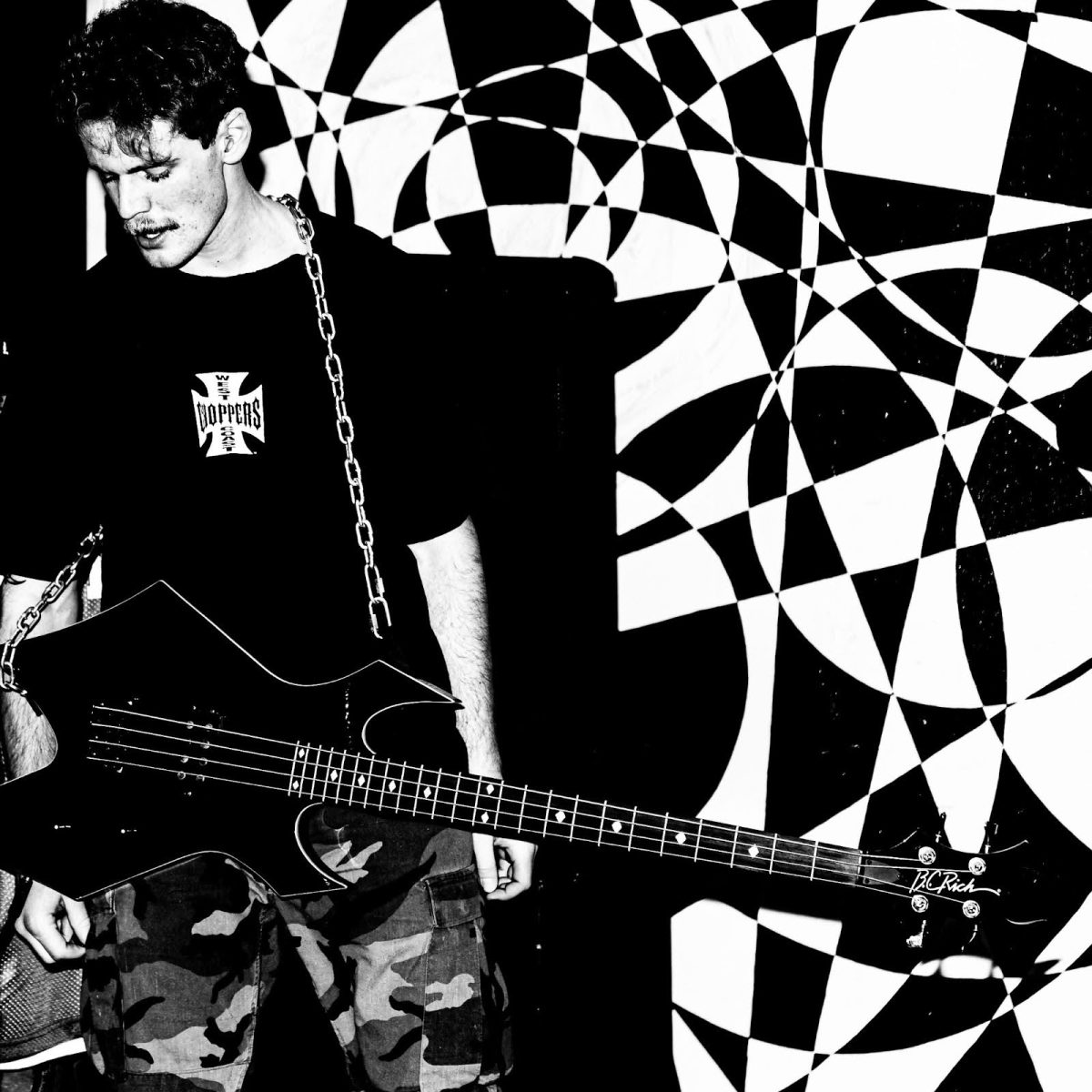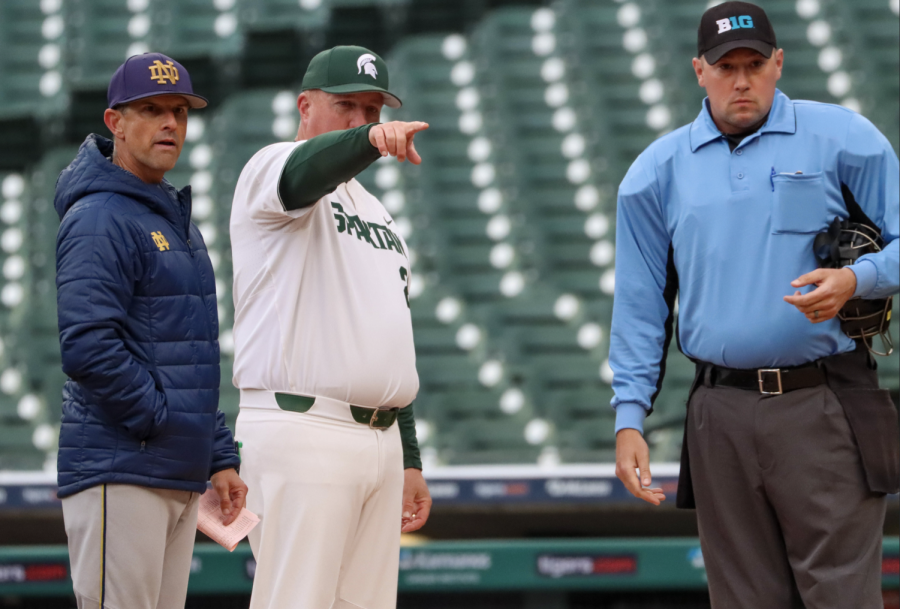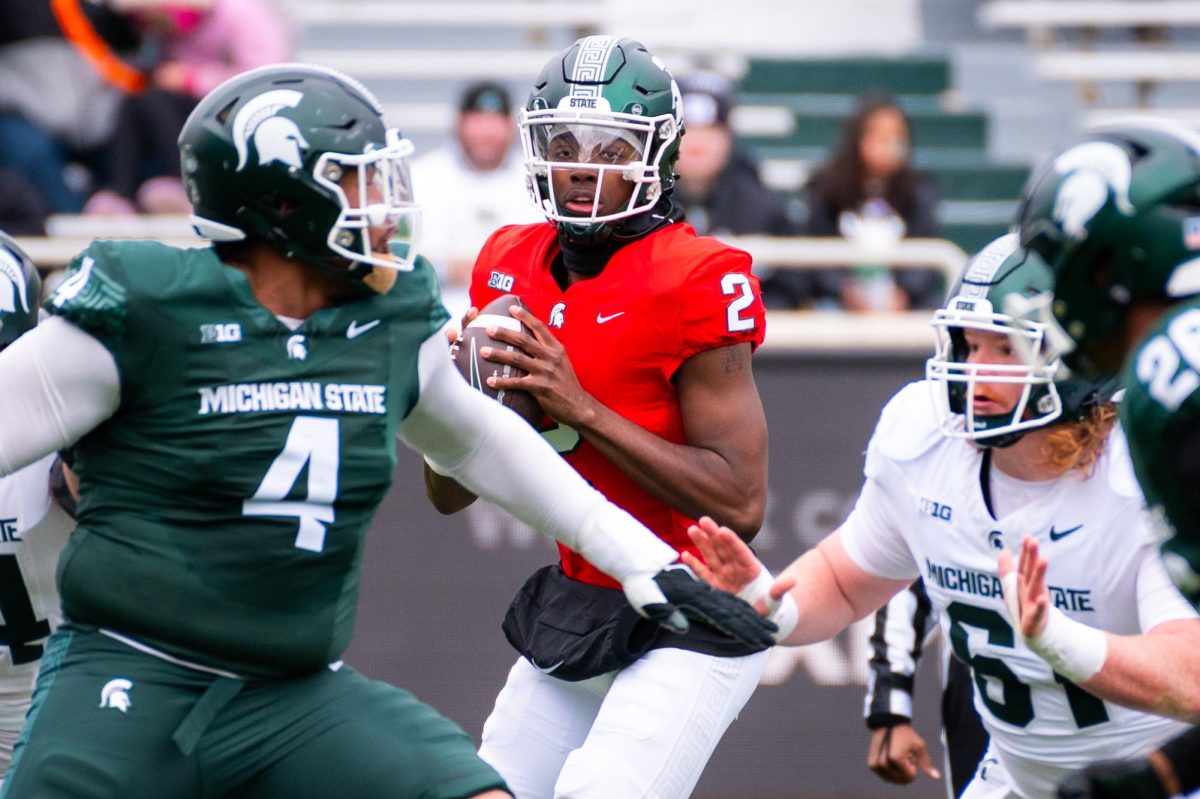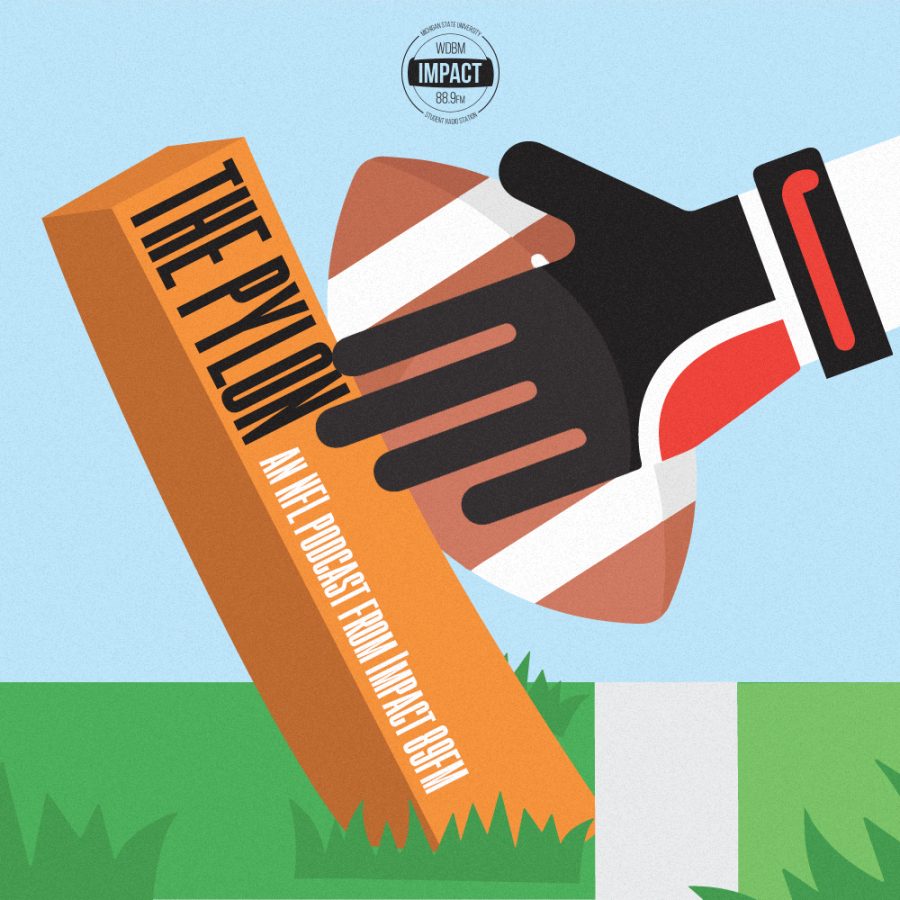Album Review, One Year Later | Mr. Morale & The Big Steppers by Kendrick Lamar

May 13, 2023
“Kendrick made you think about it /
But he is not your savior.”
Kendrick Lamar is a man, nothing more. Yes, he is one of the most acclaimed and successful artists of our time — having won multiple Grammys and the Pulitzer Prize for Music, along with having attracted one of the widest and most devoted fan bases on the planet — but those things do not rise above the simple fact that he is human. That he is imperfect. That he is not Christ.
That is an important distinction to make, though it may seem obvious. The parallels between superstar and Christ figure are numerous and easily identifiable, especially for those artists who use their medium to speak out on the troubles and imperfections of the worlds in which they live. Though these artists understand that they are inextricably linked to these imperfect and troubled environments, and that they sometimes contribute to them, not all consumers of their art seem to understand this.
Because these artists are able to point out and commentate on the hypocrisies and overarching absurdities of our world, they are sometimes seen as separated from it all. Above it all. Not contributing to it all. So, a certain belief about the perfection of these people sets in, though that often isn’t an impression these artists desire to leave. That is not the impression Lamar has ever wanted to leave.
Yes, Lamar deserves to be called one of the great social commentators of our age. He deserves to be called one of the great musicians of our age. He deserves his flowers and so much more. But he is not to be seen as a savior, as someone whose simple utterances will deliver us all in the end. It is not what he wants. It is not what he has ever wanted.
Lamar is no blasphemer. He understands that he is a man incapable of delivering us from evil, incapable of walking free of sin, incapable of fully resisting worldly pleasures. Though he has showcased his own sins and imperfections on previous albums, on Mr. Morale & The Big Steppers, he makes it as clear as possible that “he is not your savior.” He sacrifices his status through his music, the reluctantly-labeled Christ figure shedding his own skin, rising back to the top by telling the world that the view from up there is no different from the view anywhere else. The view is imperfect, like everything else good in this world.
On April 18, 2022, Lamar clarified that he was not retired. In what one would call a testament to his superstardom, this simple tweet set off a digital earthquake of sorts, taking up the entire trending bar of Twitter, prompting thousands of headlines, surely prompting hundreds of thousands of excited texts, as well. I’ll admit that I nearly fell to my knees on my way to class when I received word of Mr. Morale & The Big Steppers’ announcement.
Looking back on that day, back on the album itself, back on The Big Steppers Tour, back on numerous high-profile performances across the world and back on the $3 million crown of thorns embellishing Lamar’s head all the way through, it’s hard not to see the man as someone with a certain divinity — a certain stardom that seems almost impossible even to those generally regarded as famous.
So herein lies a truly strange divide: the ultimate spectacle of Lamar’s live shows, the power he bore around his head and the almost-earthshaking effects from the mere announcement of his return versus the stark humility of the album Mr. Morale & The Big Steppers.
But that divide is why the album exists in the first place. In summer of 2022, when I saw Lamar stand silent on stage for minutes on end, receiving the loudest cheers I have ever heard in my life, I couldn’t help but think that this was my first time truly experiencing that aforementioned superstardom — the feeling of complete shock that such a titan of a cultural figure stood before me in the flesh, with bright lights shining on the diamonds of his forehead and fingers. How could such a person exist in the same space as me?
Even after the messaging of Mr. Morale & The Big Steppers, it seemed that I still saw him as some kind of Christ figure, perhaps because of the simple fact that he lay in one of the upper echelons of fame, or because of the wide, almost mysterious gap of silence he left after DAMN. or that he literally bore that crown of thorns on his head. Perhaps it was simply because I viewed him as one of the greatest musicians of the 21st century and couldn’t believe I was finally able to see such an elusive and private figure put on a show that I could only dream of.
But, regardless of whatever hype I was swept up in and others were swept up in, Lamar canceled out some of the same hype he created with Mr. Morale & The Big Steppers because, once again, he strives for humility above all. And he took a few rather strange routes to make us know he isn’t perfect, that he isn’t above it all — one of those routes being the heavy inclusion of Kodak Black, who received 18 months of probation for a 2016 sexual assault case. This presence on the album was disappointing and slightly confusing for me, but I understand what Lamar was trying to touch on: the ridiculous nature of fans’ ideas of what should be considered “real rap.” Could this have been communicated differently? Absolutely. I wish it had been.
But, aside from this, Mr. Morale & The Big Steppers tends to hold some incredibly positive messages at heart, commentating on our warped views of manhood, our misunderstanding of how to properly embrace our emotions, our ignorant views of sexuality and gender, our complicated family relationships and our complicated relationships with ourselves. And everything runs through the last item on that list: self. The thing everyone on this Earth fights, loves, hates. The thing everyone on this earth wants to equally grow and kill. From celebrity to common man, the thing we all share.
Lamar tackles the turmoil within himself, as he has always done. We saw significant strands of this internal struggle on To Pimp A Butterfly and DAMN., but it can be argued that Mr. Morale & The Big Steppers is where he looks at himself in his greatest depth yet. Braggadocious Lamar is largely gone on this album — making just a few appearances — and he is largely concerned with shedding the image of perfection that he believes fans have placed on him. He states that he needs therapy, that he’s “been going through something.”
These are things men have struggled with admitting for years and years and years on end. Weakness is what has come to mind with these things. And, even with significant cultural pushes to end the stigma of expressing one’s feelings as a man, it can remain so difficult. Men have struggled to tell others that they truly love them, and for so many it has been truly impossible to look in the mirror and say “I love you” to themselves.
In the track “Father Time” specifically, self-love and manhood are hit on most directly: what men can and cannot do, what makes a man weak, what makes a man strong, what can kill a man emotionally. This concept of self-love runs throughout the entire album: It is the blood keeping it alive. Look to “Count Me Out,” “Purple Hearts,” “Mirror” and more. Look to the overarching message that life cannot be brute-forced. That no one on this Earth has all the answers, that no one on this Earth is free of mistakes, that no one on this Earth is Christ, no matter how creatively, intellectually or socially gifted they may be.
How obvious, right? The fact that none of us are perfect. It’s been said over and over and over again. But do we ever listen? So many refuse to listen, and I know there are so many times that I’ve refused to listen. But when there is the idea of a perfect figure out there, it is hard not to strive for it. To almost worship it. That’s why Lamar made it a point of utmost importance to shed any idea of his perfection on Mr. Morale & The Big Steppers.
It is not good for him to hold himself to personal perfection. Sure, there is a place for high standards: Obviously, Lamar has high standards for his own music, but in his music he insists that perfection is an ailment. Or, at least, the idea of it is. Most specifically, he refers to the concept of emotional perfection: a laughable concept, a dangerous concept, a concept that can cost lives.
Therein lies the core of Mr. Morale & The Big Steppers: emotional imperfection. Incredible artistic skill, but emotional imperfection. And the truth about how this emotional imperfection is ubiquitous and essential to accept. It seems what Lamar had spent the 1,855 days between the releases of DAMN. and Mr. Morale & The Big Steppers doing was coming to a greater understanding of that truth. And the pure weight of that truth. Because how difficult is it to look in the mirror and say “I am broken, but beautiful nonetheless?” How difficult is it to look at the surrounding world and accept that it, too, is an inherently broken place?
With Lamar’s commentary on the world, it has always come back to commentary on himself. And now it comes back to a message that is slowly becoming more common in the world of rap: Be gentle. Do not try to be half-man, half-god. Understand limits. Strive for introspection, for healthy vulnerability. For the rawest, most honest version of yourself.
Though Lamar released one of 2022’s best and most potent albums — one that has only grown more fascinating one year later — and though he has released some of the century’s best and most potent albums, he is nothing more than a man. A man broadcasting an important message, yes, but just a man. And, still, we are all the same. Shattered in our many ways, lost in a lifetime air of confusion, but happier in the realization of it.
Lamar sums up the entire album and this recent chapter of his life in the closing lines of “Mirror.”
“Sorry I didn’t save the world, my friend /
I was too busy building mine again /
I choose me, I’m sorry.”
An admission that Lamar can only handle so much. That the rest of us can only handle so much. Because though we are beautiful, though we are strong, though we are capable of changing the world, we are nothing more than human. And there’s nothing more I’d want to be.



































